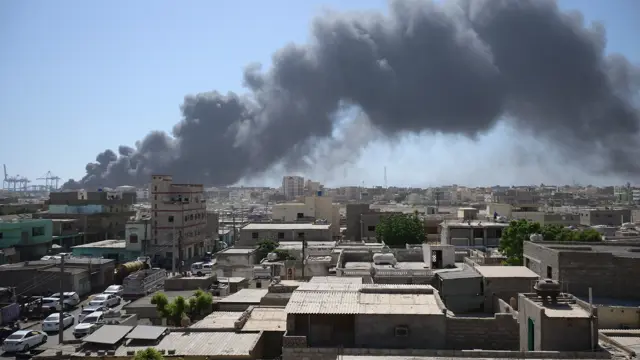Cholera Outbreak Escalates in War-Torn Khartoum, Deepening Humanitarian CrisisA devastating cholera outbreak has swept through Sudan’s war-ravaged capital, Khartoum, killing 70 people in just two days and intensifying what officials describe as a mounting health emergency. Health authorities on Thursday confirmed the alarming death toll and a rapid increase in new infections amid collapsing infrastructure and widespread displacement caused by over two years of brutal conflict.
The Ministry of Health for Khartoum State reported 1,177 new cholera cases and 45 deaths on Tuesday, followed by 942 additional infections and 25 more deaths on Wednesday. This surge comes just weeks after drone strikes, attributed to the paramilitary Rapid Support Forces (RSF), reportedly knocked out the capital’s water and electricity supplies—essential services already severely strained by ongoing war.
Khartoum has remained one of the central battlegrounds in the ongoing civil conflict between the Sudanese army and the RSF, which erupted in April 2023. Although the army-backed government announced last week that it had successfully driven RSF fighters from their last strongholds in Khartoum State, the capital city remains in ruins. Its health and sanitation infrastructure is barely functional, with water systems broken and hospitals overwhelmed.
According to humanitarian officials, nearly 90 percent of hospitals in Sudan’s main conflict zones are no longer in service due to persistent violence and lack of resources. The cholera outbreak has only added to the pressure on the remaining health facilities, many of which are operating with skeleton staff and minimal medical supplies. The federal health ministry recorded 172 cholera-related deaths in the week leading up to Tuesday, with 90 percent of these fatalities occurring in Khartoum state alone.
The scope of the current cholera outbreak is staggering. Since August 2024, health authorities have documented more than 65,000 cholera cases and over 1,700 deaths across 12 of Sudan’s 18 states. Khartoum state alone has recorded over 7,700 cases, including more than 1,000 infections in children under the age of five, and at least 185 deaths since January.
The International Rescue Committee has sounded the alarm over the spiraling health crisis. Eatizaz Yousif, the organization’s Sudan country director, described the situation as critical, warning that “Sudan is on the brink of a full-scale public health disaster.” According to Yousif, the combination of war, displacement, destroyed infrastructure, and a lack of clean water is accelerating the resurgence of cholera and other deadly diseases.
Humanitarian organizations are particularly concerned about the impact of the upcoming rainy season, which is expected to begin next month. Rainfall typically worsens waterborne disease outbreaks and limits humanitarian access to affected communities, especially in areas where roads are already impassable and healthcare access is almost non-existent. Without urgent international intervention and improved humanitarian corridors, aid agencies fear that the death toll from the cholera outbreak will rise sharply.
The ongoing war has had catastrophic consequences across Sudan, killing tens of thousands and displacing more than 13 million people nationwide. Khartoum, once the country’s bustling capital, has seen at least three million residents flee, with tens of thousands returning in recent months after the army reclaimed parts of the city. But returnees have found nothing but devastation—damaged homes, destroyed services, and an absence of safe drinking water.
The United Nations reports that over 34,000 people have returned to Khartoum State in recent months, often out of desperation rather than hope. UNICEF has warned that more than one million children are at direct risk in cholera outbreak-affected areas of the capital, facing both disease and hunger with no reliable access to healthcare.
The cholera outbreak in Khartoum stands as a stark reminder of the humanitarian cost of prolonged conflict. As disease spreads and infrastructure crumbles, the people of Sudan remain caught in a deepening crisis that shows no sign of easing.
Source- EWN

